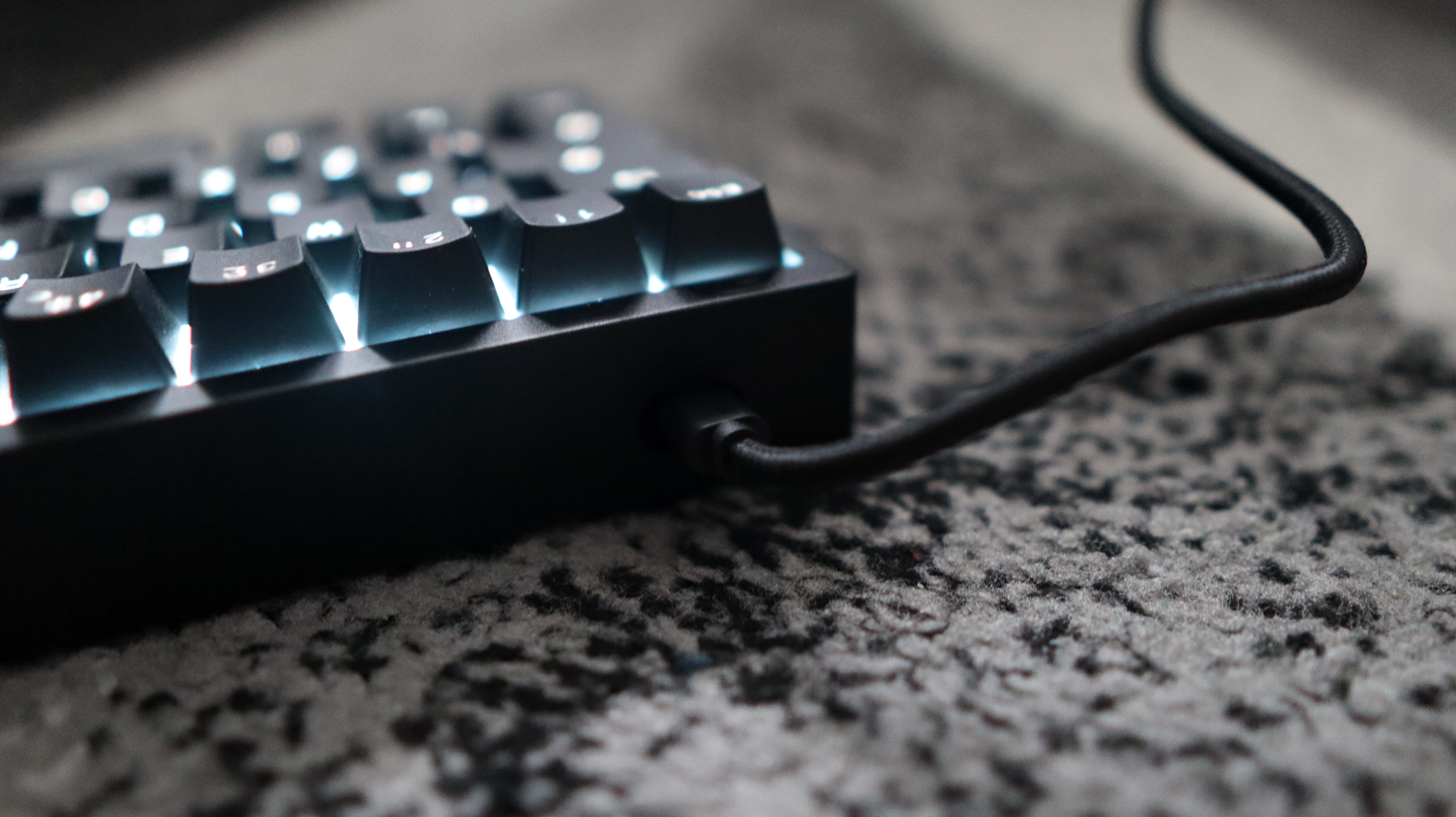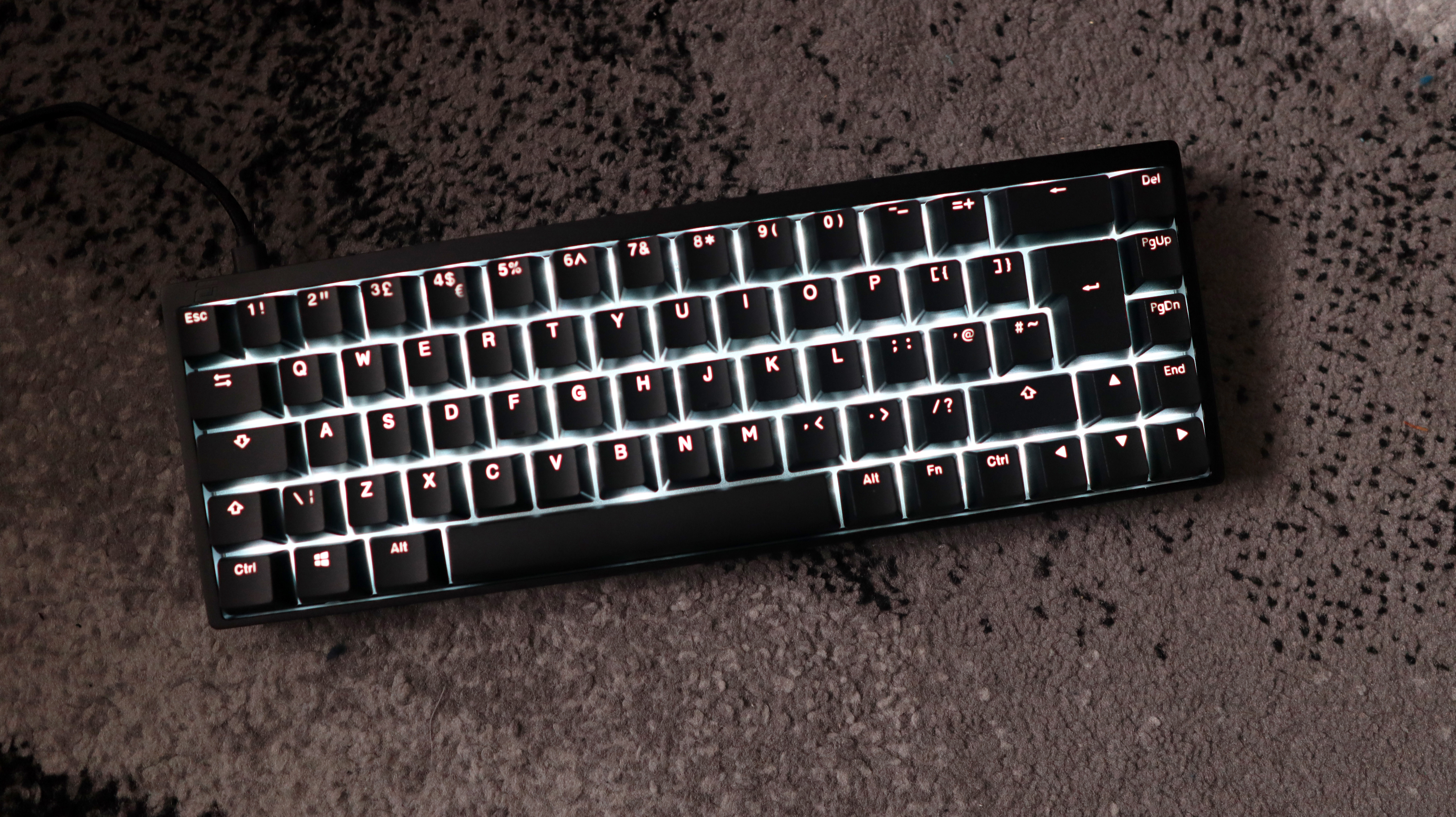
I’ll be completely honest. Hall effect keyboards have never really done it for me. I’m not necessarily sure how to feel about a keyboard that purports to be mechanical, but then has no real switch inside. However, personal qualms aside, I can see why a lot of gamers have flocked towards them. They offer snappy inputs for starters, while there are some next-level options including the Wooting 60HE which offer special functions such as rapid trigger to offer even quicker inputs thanks to their adjustable actuation points with next-to-no debounce.
That’s where this Endgame Gear KB65HE comes in, a £139/$139 Hall effect option which brings the powers of Hall effect and rapid trigger in a reasonably priced package. The switches inside the KB65HE are Gateron KS-37Bs, which are excellent for their intended purpose: high intensity gaming.
They’re smooth thanks to the self-lubricating POM stems and especially light to press with a 30g actuation force and 50g bottom out, which makes them the lightest switch I’ve ever used. The KB65HE’s switches are reasonably satisfying to type on, when compared against similarly weighted linear options. They also offer no wobble and are stable even under intense loads.
Physical properties aside, the big thing with the KB65HE’s switches are the fact they’re Hall effect. In essence, this means they work with magnets as opposed to traditional mechanisms. A magnet is sent down the switch’s stem to a sensor, where it registers an input. Given that there isn’t a physical mechanism with a defined point that the switch actuates, Hall effect switches have the ability to have their actuation points customised. That’s where the speed of the KB65HE comes in.
If you like, you can adjust keys to have inputs as high as 0.1mm, which are the highest I’ve seen possible on a Hall effect keyboard. Usually they are limited to either being in a 5 to 95 percent window of a switch’s 4mm total travel, but with the KB65HE, it’s two-and-a-half percent at its highest point.
It’s within the Windows-only software where you program the individual points for both the pressed and released thresholds for the KB65HE’s switches. To get the rapid trigger effect, you have to set both as high as possible. It’s a scale between 1 and 40: set it to 1, and you’ll experience incredibly quick inputs.
In testing the KB65HE in Counter Strike 2, it genuinely makes a different to how brisk inputs feel, although for someone used to more traditional switches, they did take some getting used to. It proved handy for everything from WASD inputs, to how quickly I could switch between weapons and pelt grenades at the bots I was playing with. Yes, I use bots, please don’t judge me; I’ve never been that good in FPS titles on either console or PC, but the KB65HE’s switches felt as if they made a tangible difference to my gunplay, even if the player is still crap.
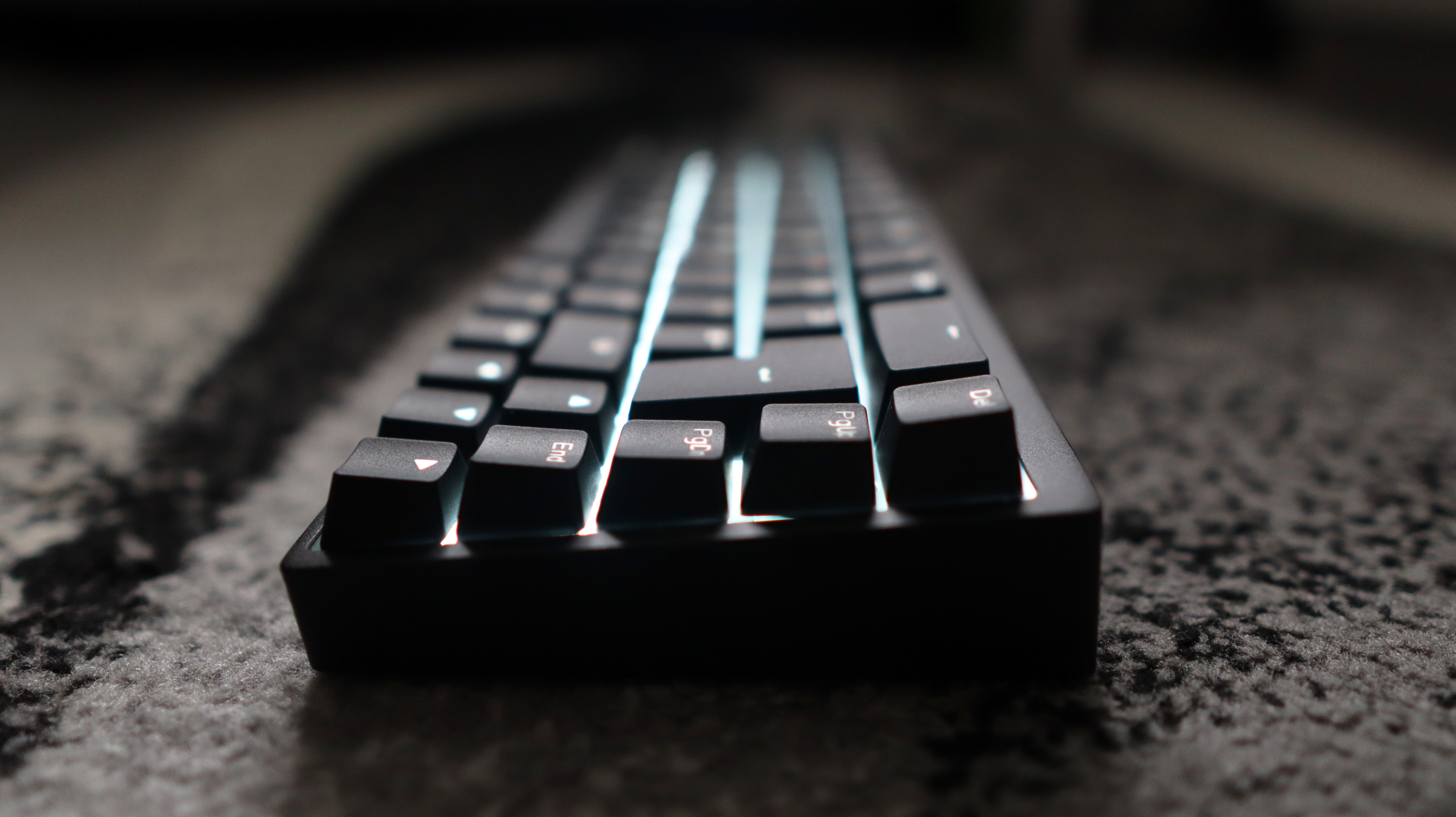
Elsewhere, the KB65HE has the makings of an excellent keyboard in a burgeoning market. The software is lightweight while offering solid functionality for customising actuation points and the board’s RGB lighting, while said lighting is vibrant and bright across all keys. Lighting presets are available within the keyboard’s software, although it can also be configured with those presets on a per-key basis for extra precise customisation. You also get the ability to program macros, which is especially easy in this slick package.
A major plus point of the KB65HE is its aluminium case. These are usually reserved for similarly-sized enthusiast-level keyboards, as opposed to strictly gaming options like the KB65HE. It’s built like an absolute tank, and offers no deck flex whatsoever. A weight of 1.05kg makes this a hefty keyboard of its size, and you could conceivably use the KB65HE as a weapon, not that I’m condoning the use of keyboard-based violence, of course. The all black aluminium case looks clean to my eyes, although some may wish for something a little more out there.
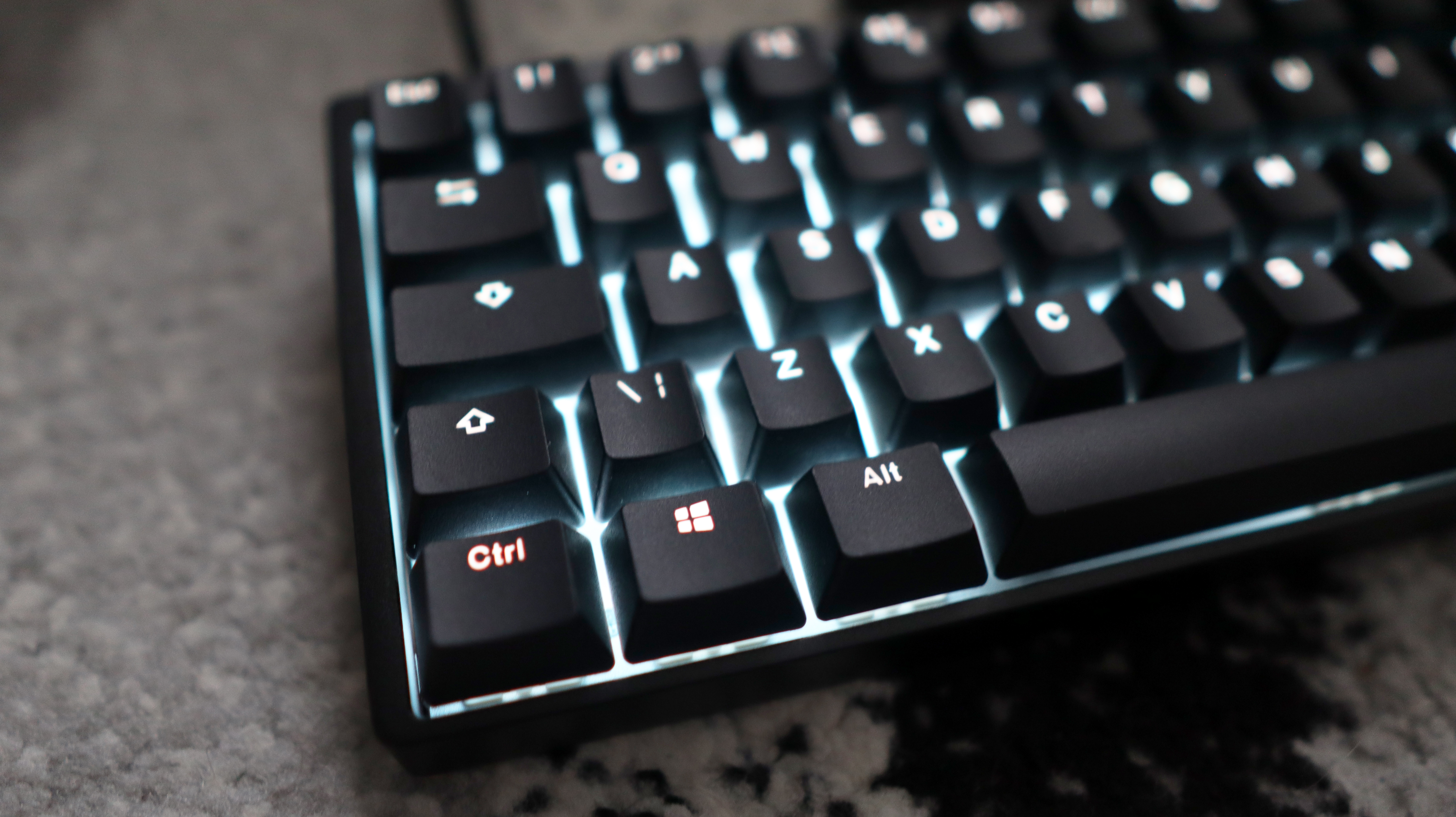
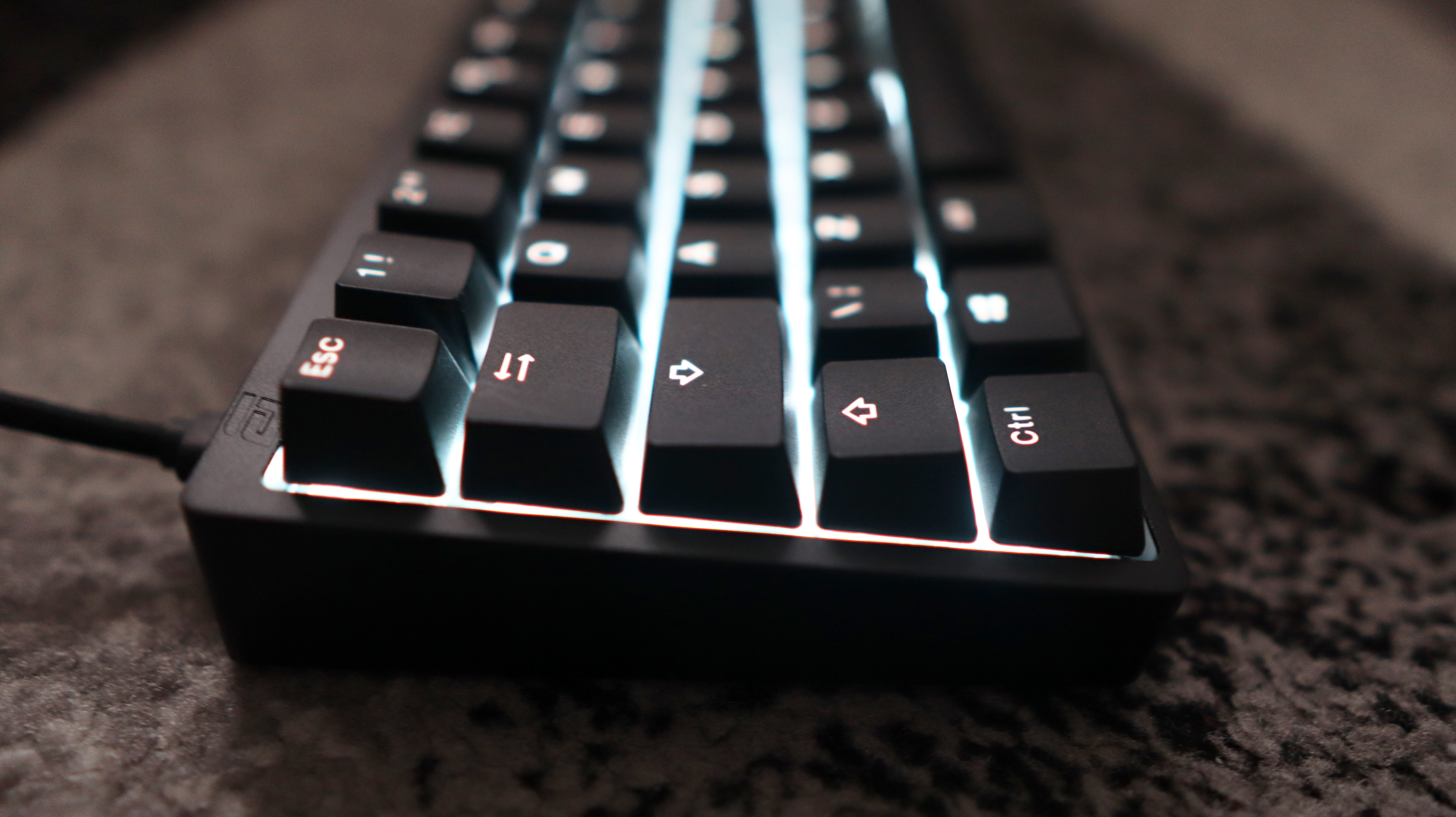
✅ You want the ultimate in speedy switches: The KB65HE’s hall effect switches with their rapid trigger and adjustable actuation point make light work of FPS titles.
❌ You want more exciting looks: While the all-black aesthetic of the KB65HE is clean to my eyes, you might want something a little more flashy and out there.
Enthusiast-level features are also present elsewhere on the KB65HE with its 1.8m USB-C to USB-A braided cable as well as its use of doubleshot PBT keycaps, which have been manufactured in collaboration with Ducky. This may seem like a small thing to pick up on, but it helps the KB65HE justify its price point more so than if they had stuck with the ABS plastics I’m used to seeing on keyboards. PBT is a much more durable and higher quality plastic than ABS, and also are resistant to the horrible glossy shine that develops after extended use. The KB65HE’s keycaps are also textured and feel excellent under finger.
The 65 percent layout on offer here is functional, and makes for the smallest key layout I can comfortably use. We’ve seen smaller layouts become fashionable as the gaming and enthusiast keyboard disciplines have converged, and it’s pleasant to see the KB65HE lean into this. You get a full set of alphanumeric keys, as well as arrow keys in the bottom right corner, and a squished-up nav cluster on the far right column. It’s a functional layout that doesn’t sacrifice on too much compared to a 75 percent or TKL keyboard. You only miss out on a full function row and some extra nav cluster keys.
All things considered, the KB65HE is a lovely Hall effect gaming keyboard. It’s more affordable than many of the heavy hitters from SteelSeries and Wooting that it’s competing with, while offering a compelling set of features. The Hall effect switches are especially snappy, while its excellent construction and overall clean looks go a long way to make this one of the best gaming keyboards at its price point.
